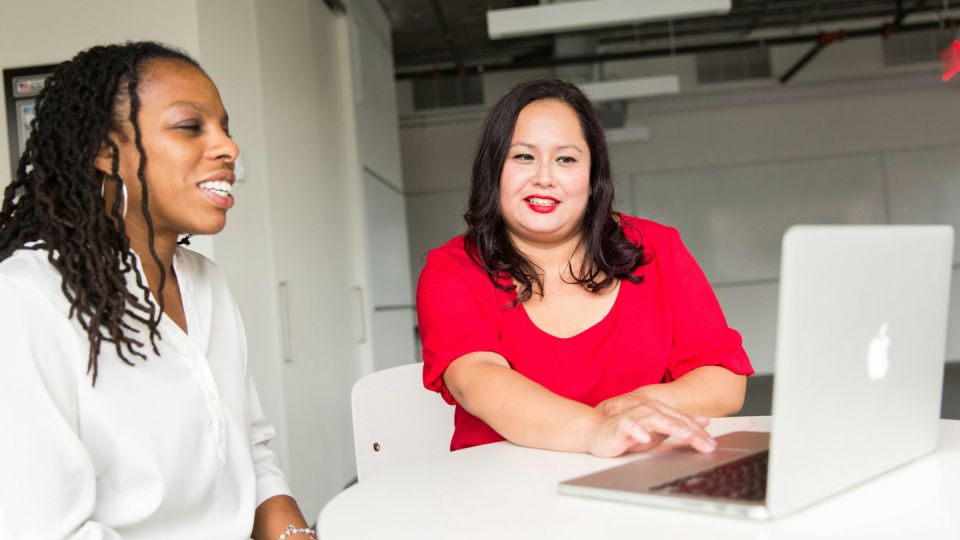

Exploring Career Paths: A Comprehensive Guide to Making Informed Career Decisions
Choosing a career path is one of life’s most significant decisions. It’s not just about finding a job, it’s about discovering a role that brings purpose, plays to your strengths, and supports your lifestyle. In today’s rapidly shifting job market, influenced by automation, digital innovation, global economic shifts, and the rise of hybrid working, career paths are more diverse and fluid than ever before.
The challenge many people face, however, is knowing where to begin. With endless options and evolving industries, it’s easy to feel overwhelmed or uncertain. Whether you're a student choosing a degree, a job seeker considering a career switch, or a professional questioning your next step, career exploration is the key to clarity.
At Macildowie, we understand how daunting these decisions can be. That’s why we offer expert guidance, tools, and resources to support individuals at every stage of their career. From workshops to one-to-one coaching, we help you explore your options, discover your strengths, and make informed decisions that lead to long-term satisfaction and success.
Understanding Career Path Exploration
What is Career Path Exploration?
Career path exploration is a structured, intentional process that involves identifying, researching, and evaluating a broad range of career opportunities. It starts with gaining a deep understanding of your personal values, interests, strengths, and long-term ambitions. By examining how these align with different industries, roles, and working environments, you’re able to identify pathways that offer not only professional growth but personal fulfilment too. It's about asking the right questions: What motivates me? Where do I thrive? What kind of impact do I want to have in the world?
This process empowers individuals to move beyond surface-level decision-making. Rather than chasing trends or defaulting to familiar paths, you gain the clarity and confidence to make deliberate, informed choices. Exploring career paths in this way reduces the risk of settling into roles that may lead to dissatisfaction, burnout, or feeling stuck. Instead, it opens up the possibility of building a future based on intention and alignment. It gives you agency over your own career narrative, allowing you to shape a journey that reflects not just what you’re capable of, but what truly matters to you.
Why It's Essential at Every Career Stage
Career exploration isn’t a one-off task, it’s something that should evolve alongside your life. Your goals, interests, and circumstances will change, and so should your approach to career planning.
For students, early exploration is critical for making well-informed decisions about education and career direction. It helps in choosing courses, identifying potential internships, and developing skills that match emerging job markets.
For job seekers, especially those re-entering the workforce or recovering from redundancy, exploration helps you recognise transferable skills and uncover roles that align with your current lifestyle and ambitions.
For mid-career professionals, exploration is about progression, re-evaluation, and in many cases, reinvention. Whether you’re feeling stuck, ready for leadership, or drawn to a completely different field, strategic career exploration can uncover opportunities for growth you hadn’t previously considered.
Steps to Effective Career Exploration
Self-Assessment
The cornerstone of career exploration is self-awareness. Understanding your core values, what motivates you, and where your strengths lie provides a strong foundation for informed decision-making. This involves more than just asking, “What job do I want?” Instead, ask:
- What do I enjoy doing? Think about the activities that make you lose track of time. What energises you, what you look forward to, and what leaves you feeling accomplished? This could be anything from solving problems, writing, leading a team, designing, organising, mentoring, or working with your hands. Reflect on both your professional and personal life. What tasks give you a sense of purpose? These clues can help you identify roles that naturally align with your passions.
- What environments do I thrive in? Consider whether you prefer fast-paced settings, quiet independent workspaces, or highly collaborative teams. Do you feel energised in a structured environment with clear expectations, or do you excel when given creative freedom and flexibility? Understanding this can help you identify roles where you're most likely to perform at your best.
- What kind of people do I like working with? Reflect on the qualities you value in colleagues; are you drawn to people who are driven and competitive, or those who are supportive and empathetic? Think about past group experiences and what made them enjoyable or challenging. Knowing your preferred interpersonal dynamic will help you find a team culture that fits.
- What matters most to me: stability, creativity, flexibility, purpose? Everyone is motivated by different factors. Maybe you prioritise job security and a steady income, or perhaps you seek creative freedom and the ability to innovate. Others might value flexibility to support their lifestyle, or a strong sense of purpose and making a difference. Clarifying these values helps ensure your career choices align with your deeper motivations.
Useful self-assessment tools include:
- O*NET Interest Profiler: Offers a breakdown of interest areas aligned with job families.
- Holland Codes (RIASEC model): Matches personality types with compatible work environments.
- StrengthsFinder and MBTI: Help you understand your natural talents and communication style.
These tools aren’t just for students, they provide clarity at every career stage.
Researching Career Options
Once you understand yourself better, the next step is exploring the opportunities out there. It’s important to go beyond job titles and dig into the day-to-day reality of a role. Key areas to explore include:
- What tasks and responsibilities are typical? Look into the core duties someone in the role carries out daily. This can range from administrative tasks and hands-on technical work to strategic planning and client-facing responsibilities. Understanding the typical workflow helps you assess whether it suits your strengths and interests.
- What qualifications or certifications are required? Check whether the role requires formal education, such as a university degree, or if professional certifications and vocational training are more important. In some fields, experience may outweigh formal credentials. Knowing this can guide your development or training choices.
- What are the working conditions - remote, hybrid, or office-based? Investigate where and how the work is typically done. Are roles predominantly remote or tied to a physical location? Does the job offer flexible hours? These conditions impact work-life balance, commute time, and lifestyle fit.
- What are the salary expectations and progression opportunities? Research average starting salaries, typical increases with experience, and potential for promotion or career progression. Look for roles that not only meet your financial needs but offer clear paths for growth.
- How is the demand changing over time? Consider whether the industry is expanding or contracting. Are roles becoming more specialised? Is automation or AI impacting job availability? Understanding market trends helps you plan a sustainable long-term path.
Platforms like CareerOneStop, BigFuture, Prospects.ac.uk, and even LinkedIn can give you job profiles, salary data, and career progression pathways. Use them alongside industry blogs, podcasts, and even social media to stay current.
Gaining Experience
Practical experience is one of the best ways to validate your career interests. Exposure to real-life roles can confirm your instincts or save you from investing in the wrong direction.
Ways to gain meaningful experience:
- Internships: These short-term placements are especially valuable for students and recent graduates looking to gain experience in a specific industry. Internships provide exposure to real workplace environments, build professional networks, and often lead to future job offers. They also allow you to test if the day-to-day reality of a role aligns with your expectations.
- Volunteering: Volunteering is a meaningful way to build transferable skills while giving back to a cause or community. It’s a great option if you’re exploring a career in the non-profit sector, healthcare, education, or public service. It can also demonstrate initiative and commitment on your CV, especially during gaps in employment.
- Job shadowing: A short-term arrangement where you observe a professional in their role, usually over a few days. It provides a snapshot of the responsibilities, culture, and pace of the job without a formal commitment. Shadowing helps you ask informed questions and determine whether a specific role or sector truly interests you.
- Project-based freelance work: Freelancing offers flexibility and variety, making it ideal for trying out new industries or skill sets. Whether it's copywriting, graphic design, coding, or virtual assistance, project work helps you build a portfolio and gain practical experience without the pressure of full-time employment. It’s especially useful for career changers or those re-entering the workforce.
Even side projects or hobbies can help clarify what kind of work energises you and where your skills naturally align.
Setting Goals and Creating an Action Plan
Exploration should lead to action. Once you’ve identified promising paths, set both short- and long-term goals to move forward. Use SMART goal-setting (Specific, Measurable, Achievable, Relevant, Time-bound) to give structure to your plans.
Example short-term goals:
- Complete an online course in data analytics.
- Set up three informational interviews with professionals.
- Attend a virtual networking event.
Long-term goals might include:
- Transitioning to a new role within six months.
- Earning a professional certification.
- Building a portfolio to showcase new skills.
Track your progress using a career planning tool, digital planner, or career journal.
Tools and Resources for Career Exploration
The right tools make a huge difference when exploring career options.
Online Platforms:
- O*NET: Ideal for comparing job roles, skills, and training requirements.
- CareerOneStop: Provides job market data, self-assessments, and videos.
- BigFuture: Offers resources tailored to students and young adults.
- Prospects.ac.uk: Great for UK-based graduates and early-career professionals.
Educational Institutions: Schools, colleges, and universities often provide free access to:
- Career counselling sessions
- Industry guest lectures and panels
- Alumni mentorship programs
- Work placements and internship databases
Professional Organisations: Many industries have associations that publish job guides, host events, and offer mentorship. Examples include:
- CIPD (HR)
- BCS (Tech/IT)
- ICAEW (Finance)
Macildowie’s Support in Career Exploration
At Macildowie, we work with individuals at all stages of their professional lives to help them find fulfilling careers. Our career coaching services are highly tailored and built around your unique needs, whether you’re exploring, transitioning, or developing within a role.
Our workshops and events offer practical, expert-led learning on topics like CV building, personal branding, job market trends, and career planning. These sessions connect you with recruiters and peers, making career development a collaborative, empowering process.
We also provide exclusive career exploration resources, including comparison templates, role-mapping tools, informational interview guides, and industry insights. Everything we offer is grounded in real-world knowledge and aligned with the current job market.
Our goal is to give you clarity, structure, and confidence as you navigate your career journey.
Conclusion
Career path exploration isn’t about finding one perfect job—it’s about creating a roadmap to a fulfilling, flexible, and sustainable career. The world of work is constantly shifting, and those who take time to reflect, research, experiment, and plan are best positioned to adapt and thrive.
Whether you’re starting from scratch or reevaluating where you want to go next, this guide gives you the framework to take the next step.
Macildowie is here to support your journey every step of the way. Through coaching, resources, and real human guidance, we help you move forward with purpose. Your career is a journey; let’s explore it together.
Frequently Asked Questions
Begin with self-assessment to understand your values, interests, and skills. Then explore platforms like O*NET and Prospects to match those traits to real-world roles.
Use tools like the O*NET Interest Profiler, MBTI, or StrengthsFinder. Or speak with a coach who can help guide reflection and goal setting.
Yes. O*NET, CareerOneStop, BigFuture, and Prospects all offer free assessments, job profiles, and exploration frameworks.
We offer one-to-one coaching, interactive workshops, and downloadable resources that help individuals make confident, informed career decisions.
Absolutely. It helps you identify your transferable skills, test new interests, and build a roadmap for switching industries or roles with clarity and direction.









